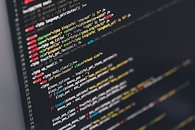Raevenlord
News Editor
- Joined
- Aug 12, 2016
- Messages
- 3,755 (1.22/day)
- Location
- Portugal
| System Name | The Ryzening |
|---|---|
| Processor | AMD Ryzen 9 5900X |
| Motherboard | MSI X570 MAG TOMAHAWK |
| Cooling | Lian Li Galahad 360mm AIO |
| Memory | 32 GB G.Skill Trident Z F4-3733 (4x 8 GB) |
| Video Card(s) | Gigabyte RTX 3070 Ti |
| Storage | Boot: Transcend MTE220S 2TB, Kintson A2000 1TB, Seagate Firewolf Pro 14 TB |
| Display(s) | Acer Nitro VG270UP (1440p 144 Hz IPS) |
| Case | Lian Li O11DX Dynamic White |
| Audio Device(s) | iFi Audio Zen DAC |
| Power Supply | Seasonic Focus+ 750 W |
| Mouse | Cooler Master Masterkeys Lite L |
| Keyboard | Cooler Master Masterkeys Lite L |
| Software | Windows 10 x64 |
Intel and NVIDIA found themselves on the same side of the field last week as both companies defended the US government's planning and intervention into the AI field. Naturally, these two giants' interests aligned in spurring the government to adopt policies and decision making that would impulse and accelerate development of AI technologies. That move would certainly boos both companies' endgames, as both have cut increased footholds in the Ai industry in their respective areas.
This was just the first of three planned hearings with industry professionals in the AI field. The order of business: to inform the federal government in formulating public policy around AI technologies, with a defining stake: making sure the US maintains its leadership in AI. Texas Congressman Will Hurd, which spearheaded the testimony in the hearing, said that "dominance in artificial intelligence is a guaranteed leg up in the realm of geopolitics and economics." AI's impact on general system's inefficiencies, such as transportation, accounting, healthcare, cybersecurity, and defense systems, were pointed towards by the NVIDIA and Intel spokespersons as definite areas of interest and extreme economic growth - and less expenditure - via AI deployment, which could ultimately add eight trillion dollars to the U.S. economy by 2035.


This approach, according to Ian Buck, Vice President and General Manager of NVIDIA's Tesla Data Center Business, should focus on three key areas: government investment in AI research and development; a complete implementation of AI systems at the federal agency level; and that the federal government would grant companies access to some of the datasets it holds complete control in, in a bid to put them to use by AI systems, and to work on their conversion to states capable of AI processing.
On the Intel field, Amir Khosrowshahi, Vice President and Chief Technology Officer of Intel's Artificial Intelligence Products Group, had a somewhat different take. He too touched upon the government-controlled datasets as being important for AI development and touching stones for AI intervention. His reasoning: that tax-payer-funded datasets should be considered a public resource, and thus be made available to anyone who wants to use them to develop deep learning models. It's an interesting take, for sure, which can be agreed to on a high level; however, some issues as to what these third parties would be able to do with access to these datasets exist.

Khosrowshahi also touched upon the need for increased funding towards development of AI-geared workforce via education programmes; attention towards the inevitable displacement of workers by robotic, Ai-enabled workforces; and one of the most important issues at stake when it comes to AI - transparency. As it stands, AI development is done in the utmost secrecy, with black boxes inside black boxes of development and corporate secrets. Transparency on AI coding, and the requirements for its deployment, should be paramount to any serious AI investment, for something so simple as accountability so as to how did the AI arrive at the given results. As Khosrowshahi said, "(...) government should consider which AI uses require algorithm explainability to mitigate any potential for discrimination and harm to individuals".
You can watch the full videos of the session below.
View at TechPowerUp Main Site
This was just the first of three planned hearings with industry professionals in the AI field. The order of business: to inform the federal government in formulating public policy around AI technologies, with a defining stake: making sure the US maintains its leadership in AI. Texas Congressman Will Hurd, which spearheaded the testimony in the hearing, said that "dominance in artificial intelligence is a guaranteed leg up in the realm of geopolitics and economics." AI's impact on general system's inefficiencies, such as transportation, accounting, healthcare, cybersecurity, and defense systems, were pointed towards by the NVIDIA and Intel spokespersons as definite areas of interest and extreme economic growth - and less expenditure - via AI deployment, which could ultimately add eight trillion dollars to the U.S. economy by 2035.


This approach, according to Ian Buck, Vice President and General Manager of NVIDIA's Tesla Data Center Business, should focus on three key areas: government investment in AI research and development; a complete implementation of AI systems at the federal agency level; and that the federal government would grant companies access to some of the datasets it holds complete control in, in a bid to put them to use by AI systems, and to work on their conversion to states capable of AI processing.
On the Intel field, Amir Khosrowshahi, Vice President and Chief Technology Officer of Intel's Artificial Intelligence Products Group, had a somewhat different take. He too touched upon the government-controlled datasets as being important for AI development and touching stones for AI intervention. His reasoning: that tax-payer-funded datasets should be considered a public resource, and thus be made available to anyone who wants to use them to develop deep learning models. It's an interesting take, for sure, which can be agreed to on a high level; however, some issues as to what these third parties would be able to do with access to these datasets exist.

Khosrowshahi also touched upon the need for increased funding towards development of AI-geared workforce via education programmes; attention towards the inevitable displacement of workers by robotic, Ai-enabled workforces; and one of the most important issues at stake when it comes to AI - transparency. As it stands, AI development is done in the utmost secrecy, with black boxes inside black boxes of development and corporate secrets. Transparency on AI coding, and the requirements for its deployment, should be paramount to any serious AI investment, for something so simple as accountability so as to how did the AI arrive at the given results. As Khosrowshahi said, "(...) government should consider which AI uses require algorithm explainability to mitigate any potential for discrimination and harm to individuals".
You can watch the full videos of the session below.
View at TechPowerUp Main Site


